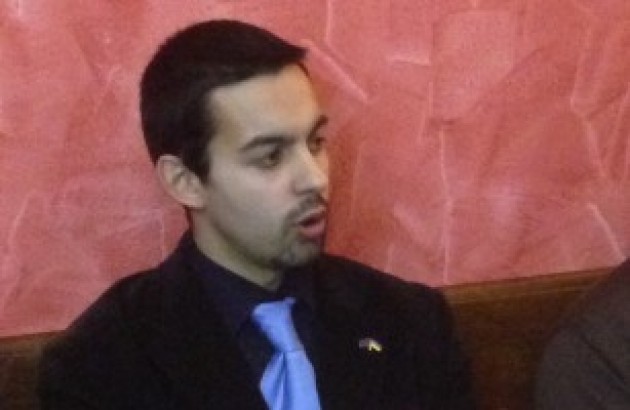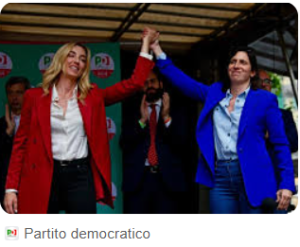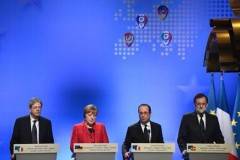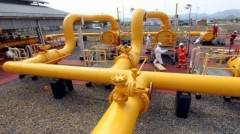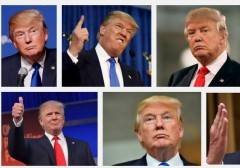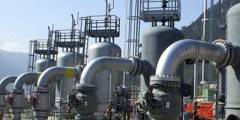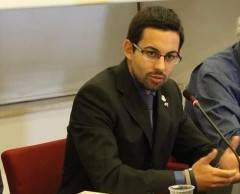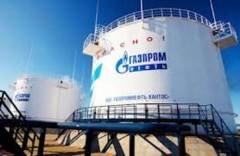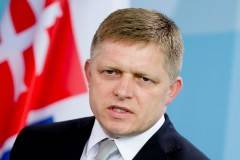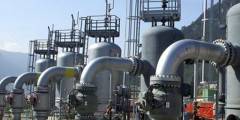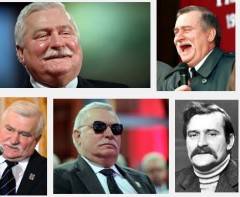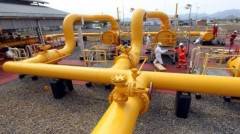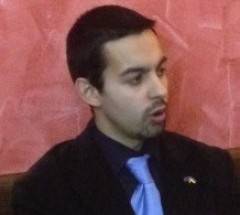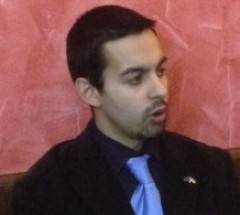Tomorrow it's going to be an important day for Europe because of the start of the administration of former PM of Poland Donald Tusk over the Council of the European Union.
Tusk is an outstanding politician that Europe needs in order to evolve from a weak and almost insignificant institution to a core part of the Trans Atlantic Community and a energy secure Union of states committed to the promotion of democracy worldwide rather that the preservation of personal interests with Russia.
The remarkable experience of Tusk as the PM of Poland, and a Solidarity dissident under the soviet regime, makes him the right man at the good moment.
Of course, Tusk needs to be supported, but I guess, although I fear, that pro-Russian lobbies and far-sighing "European federalists" who dislike a Pole in such as important office could fire him or avoid him to work as he should do. In the following commentary I explain why.
Yours, Matteo Cazzulani
Donald Tusk: an opportunity for Trans Atlantic ties and energy security
Philadelphia - The longest serving PM in the history of Poland, the only one PM to have been confirmed the head of Polish Government by the Polish voters, becomes the President of the European Council on Monday, December 1. The EU Council, the second branch for importance of the European Union, is composed by the heads of Governments and States of all member states of the European Union. It passes legislations, bills and motions for a resolution in cooperation with the European Parliament.
The appointment of Tusk, who started his career as a dissident of Solidarity independent labor union under the soviet regime, is an historical event for the European Union: for the fist time in the history of the European Union a Pole, and more in general a politician from Central Eastern Europe, will represent all PMs and Presidents of Europe.
Tusk is the right person at the good place, as his remarkable and uninterrupted support to the integration of the European Union during his political career shows. As the head of the Liberal Democratic Congress -KLD- Tusk gained his first seat in the Polish parliament thanks to the electoral motto "neither the right nor the left, just straight to Europe".
As the PM of Poland from 2007 to 2014, Tusk, who became the leader of the moderate Civic Platform -PO- made Poland one of the core countries of the European Union. PM Tusk succeeded to end an "isolationist" era in which Right and Justice conservative party -PiS- headed by then-PM Jaroslaw Kaczynski ruled the country by using to a euro-skeptical rhetoric that isolated Poland from the rest of EU.
When serving as the PM of Poland, Tusk endorsed the ratification of the Lisbon Treaty and argued the opportunity for Poland, the most important economy of Central Eastern Europe, to join the Eurozone in order to push for a further economical integration of the EU.
Thanks to an outstanding performance of his Minister of Foreign Affairs Radoslaw Sikorski -who is now serving as the Marshall of Polish Parliament Lower House- Tusk tightened Polish relationships with Germany. Tusk became also a good ally of German Chancellor Angela Merkel: the most influent politician of the European Union and a member of the European Popular Party -EPP- as well as Tusk.
In addition to his commitment to the integration of the European Union, Tusk is also a supporter of the Trans Atlantic Community between Europe and the United States. As the PM of Poland, Tusk shared the plan of US democratic Presidential Administration of Barack Obama to restart the relationships of the Trans Atlantic Community with Russia onto a less confrontational level than it used to be under the era of US republican President George W Bush and Polish conservative PM Kaczynski.
In particular, Tusk welcomed the decision of President Obama to revise a missile shield defense project of NATO conceived by Bush, eventually seconded by Kaczynski, for the dislocation of permanent Patriot missile batteries in Poland and a radar station in Czech Republic. On the contrary, Tusk backed a new version of the spatial shield conceived by the Obama Administration with the installation of a radar station in Turkey and the dislocation of rotating Aegis-classed ballistic missiles in Poland, Rumania and Turkey.
Tusk was also deeply committed to the Treaty of Trans Atlantic Trade and Industrial Partnership -TTIP- in order to launch a free trade area of both the European Union and the United States.
In the end, Tusk was deeply committed to the promotion of democracy and liberty in Eastern Europe, in particularly in Ukraine, where a diplomatic initiative of the European Union headed by Polish MFA Sikorski succeeded to overthrow former Ukrainian President Viktor Yanukovych. Yanukovych, a puppet of Russian President Vladimir Putin, was responsible of shooting against peaceful demonstrators of Euromaidan -the non-violent move in support of the integration of Ukraine within the European Union- and selective prosecution over political opposers and journalists.
The need of a new German-Polish political entente
By considering his remarkable biography, Tusk has the opportunity to lead the European Union to a change of mentality and perspective. Thanks to his experience as a top politician of Center Eastern Europe, and as a dissident under a soviet regime prior to this, Tusk could counterbalance the President of the European Commission Jean Claude Juncker: a former PM of Luxembourg whose conception of Europe is still based on the political axis between Germany and France.
Moreover, Tusk, as the President of EU Council, will be responsible of the legislative branch of the European Union together with the President of the European Parliament Martin Schulz, a German with whom Tusk has the opportunity to strengthen a cooperation based on a rising German-Polish political entente that could possibly replace, or balance at least, the traditional German-French one.
Finally, Tusk can push the European Union for a quick ratification of TTIP with the United States, in order to allow the Trans Atlantic Community to be competitive with China, Russia and India in the multipolar world of the XXI century.
A tighter cooperation of the European Union with the United States is also related to the strengthening of NATO in Central Eastern Europe: a path that Tusk strongly supports as a means to ensure national security of Poland, Lithuania, Latvia and Estonia from military threats by Russia.
The need of European Energy Union and US shale export
In addition to the strengthening of a German-Polish political entente within the European Union and the support to tighter cooperation with the United States, Tusk can also play an important role on energy issues by pushing for the realization of the European Energy Union.
This project, previously planed by former European Commission Presidents Jacques Delors and Romano Prodi, was relaunched by Tusk and the President of France Francois Hollande in order to create a common energy market of the European Union, in order to ensure energy security of all member states of the European Union.
In particular, the European Energy Union consists of the integration of Gas Transportation Systems of all member states of the European Union. The project also plans the realization of new pipelines and LNG terminals to diversify natural gas supplies and decrease the high energy dependence on Russia and Algeria by so doing.
Both the support of Tusk to a full-scale integration within the European Union and the good relationships that Tusk succeeded to establish with President Obama could lead to a quick realization of the European Energy Union.
On the one hand, Tusk can use his bipartisan partnership on the issue with French President Hollande -who is a socialist- to gain support to the European Energy Union of those EU member states that are reluctant to drop energy ties with Russia, such as Belgium, the Netherlands, Hungary, Bulgaria, Greece and Italy.
On the other hand, Tusk could persuade President Obama to select the European Union as the main market for US shale gas export, as soon as US State Department will allow the commercialization of shale gas to those countries which don't have any free trade agreement with the United States.
The debate whether authorize US shale gas export to Europe is a hot-topic in the United States parties political confrontation. On the one hand, centrist democrats and moderate republicans endorse the issue as a means to guarantee a key role in world geopolitics to the United States as an energy power.
On the other hand, liberal democrats and far-conservative republicans argue that US shale gas bonanza should be used for the internal purpose to drop energy prices for the American citizens, instead of export it to influence foreign policy.
The Congress, in which republicans gained the majority of seats, aims to pass a legislation to utilize US shale gas export to strengthen energy security of allied countries to the United States, such as India, South Korea, Singapore, Australia, Japan and the European Union.
President Obama, a democrat ideologically close to the liberal faction, did not yet assume a clear position on the issue, but declared himself to be favorable to the use of US shale gas bonanza to boosts United States energy exports.
Matteo Cazzulani, Analyst of Trans Atlantic, Central Eastern European and energy issues, @MatteoCazzulani




